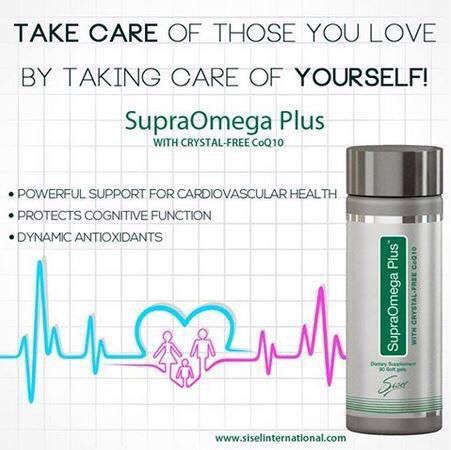Major health benefits of getting Omega-3 Fatty Acids in your diet whilst warning of toxins and harmful chemicals in the most common sources.
The article below “Facts on Omega-3 Fatty Acids” was taken from WebMD. What’s interesting is that the article strongly highlights the Major health benefits of getting Omega 3 Fatty Acids in your diet and in the same breath warns of toxins and harmful chemicals in the most common sources.
- Fish (some have higher levels than others) contains mercury, PCBs, and a host of other toxins. These include mackerel, wild swordfish, tilefish, and shark.
- Farm-raised fish of any type may also have higher levels of contaminants.
- Children and pregnant women should avoid these fish entirely. Everyone else should eat no more than 7 ounces of these fish a week. Fish like wild trout and wild salmon are safer.
- Omega 3 from oils and nuts — can be high in calories. So eat them in moderation.
So it seems obvious that purified fish oil supplements with high quality Omega-3 Fatty Acids hat have the PCBs, mercury, the other contaminants removed are a perfect, convenient and safe source to ensure adequate dietary levels of Omega 3.
Sisel’s SupraOmega Plus (previously called SupraOmega3 now called SupraOmega Plus) follows superior sourcing and strict manufacturing procedures making Sisel’s SupraOmega Plus the perfect choice.
SupraOmega Plus is Sisel-safe and contaminant free, most importantly mercury free. Very important.
Why is SupraOmega 3 better than others? (SupraOmega Plus) Well number one it doesn’t have a contaminant, they’ve all been removed, it’s completely clean and Sisel-safe.
SupraOmega3 (SupraOmega Plus) has 3 different types of marine Omega 3. It’s the highest quality you could possibly put in your body.
Buy Safe Toxin Free Supplement with Omega 3 Fatty Acids SupraOmega Plus

All sorts of ailments, diseases, illnesses, and conditions can be helped by including Omega 3 Fatty Acids in your diet. Inflammation, heart health, brain health, aging, fat loss, Parkinson’s, and on and on and on.
Below is the MD article on Omega-3 Fatty Acids aken fromt http://www.webmd.com/healthy-aging/omega-3-fatty-acids-fact-sheet
The Facts on Omega-3 Fatty Acids
When it comes to fat, there’s one type you don’t want to cut back on: omega-3 fatty acids. Two crucial ones — EPA and DHA — are primarily found in certain fish. ALA (alpha-linolenic acid), another omega-3 fatty acid, is found in plant sources such as nuts and seeds. Not only does your body need these fatty acids to function, but also they deliver some big health benefits.
How They Help Your Health
Blood fat (triglycerides). Fish oil supplements can lower elevated triglyceride levels. Having high levels of this blood fat puts you at risk for heart disease.
Rheumatoid arthritis. Fish oil supplements (EPA+DHA) can curb stiffness and joint pain. Omega-3 supplements also seem to boost the effectiveness of anti-inflammatory drugs.
Depression. Some researchers have found that cultures that eat foods with high levels of omega-3s have lower levels of depression. Fish oil also seems to boost the effects of antidepressants and may help the depressive symptoms of bipolar disorder.
Baby development. DHA appears to be important for visual and neurological development in infants.
Asthma. A diet high in omega-3s lowers inflammation, a key component in asthma. But more studies are needed to show if fish oil supplements improve lung function or cut the amount of medication a person needs to control the condition.
ADHD. Some studies show that fish oil can reduce the symptoms of ADHD in some children and improve their mental skills, like thinking, remembering, and learning. But more research is needed in this area, and omega-3 supplements should not be used as a primary treatment.
Alzheimer’s disease and dementia. Some research suggests that omega-3s may help protect against Alzheimer’s disease and dementia, and have a positive effect on gradual memory loss linked to aging. But that’s not certain yet.
Where to Get Omega 3s
When possible, try to get omega-3 fatty acids from foods rather than supplements. Aim to eat fish high in DHA and EPA omega-3 fatty acids two to three times a week.
These include:
- Anchovies
- Bluefish
- Herring
- Mackerel
- Salmon (wild has more omega-3s than farmed)
- Sardines
- Sturgeon
- Lake trout
- Tuna
While eating more fatty fish is a good idea, some are likely to have higher levels of mercury, PCBs, or other toxins. These include mackerel, wild swordfish, tilefish, and shark.
Farm-raised fish of any type may also have higher levels of contaminants. Children and pregnant women should avoid these fish entirely. Everyone else should eat no more than 7 ounces of these fish a week. Fish like wild trout and wild salmon are safer.
Good food sources of ALA are:
- Walnuts
- Flaxseed and flaxseed oil
- Canola oil
- Soybean oil
While foods containing omega-3 fatty acids have health benefits, some — like oils and nuts — can be high in calories. So eat them in moderation.
Should You Supplement?
Fish oil has both EPA and DHA. Algae oil has DHA and may be a good option for people who don’t eat fish.
Talk to your doctor about taking a supplement first. He or she may have specific recommendations, or warnings, depending on your health and the other medicines you take. Your doctor can also recommend the right dose.
People with heart disease are usually advised to take 1 gram (1,000 milligrams) daily of a combination DHA /EPA from fish oil.
People with some health conditions may take doses of up to 4 grams a day — but only under a doctor’s supervision.
The most common side effects from fish oil are indigestion and gas. Getting a supplement with a coating might help.
Omega-3 supplements (DHA/EPA) can make bleeding more likely. If you have a bleeding condition — or take medicines that could increase bleeding, like Coumadin, Plavix, Effient, Brilinta, and some NSAIDs — talk to a doctor before using any omega-3 supplements.
WebMD Medical Reference
Last Updated on March 27, 2023 by Katie Sisel Distributor
